Kate Bowler: I’m Kate Bowler, and this is Everything Happens. I’m a historian, author, aggressively fast walker. But lately, in a world that promises endless progress, even now in a pandemic, I realized I just need to be a person. It’s hard to give up on the feeling that the life you want is just out of reach. If only you tried to eat this food, find that relationship, just get the kids graduated or the parents this kind of care. Only then will I feel different, better, whole. But that’s not the way this works. When I was 35, I was diagnosed with stage four cancer. And here’s the very fun thing about that. The world loves you better when you are shiny, when you are cheerful, when you still believe that your best life now is right around the corner. I’ve written multiple books on the history of the idea that you can always fix your life. So I’m going to be the one to say it. There are some things we can change and some things we can’t. And it’s OK that life isn’t always getting better. We can have beauty and meaning, community and love, and we will need each other if we’re going to tell the truth. Life is a chronic condition and there’s no cure for being human.
Kate: Hello, my dears. It’s me, Kate. Hi. This is our final episode of Season six of the Everything Happens podcast. And don’t worry, our team just needs some naps and some vitamin D, and then we will be back in August for even more gorgeous conversations on the topics that you’ve all asked for. This podcast is one of my favorite things I get to do during the week, it is the culmination of late nights, crying over microphones with brand new friends, creating new language to help describe the ambiguous and limited spaces we live inside, reading and rereading your beautiful emails and comments and reviews. As we close out this season of amazing guests, I thought it would be sort of refreshing, bracing maybe, to go back to the very beginning. I started this podcast in the midst of a crisis. My life had come apart very suddenly and I was not sure how much of it I’d have. I was desperate to put words into form just to have a second to tell the truth. Partly because I’d become such a wonderful liar the second I got sick, oh, no, I’m fine. Oh, no, it’s going to be OK. No, no, no. I’m sure we can all handle this. So this podcast gave me a chance to be honest, in a way that I had not thought that I was capable of, and then to realize that the people who are reaching out to me from across time and space, over microphones, that those guests would become friends, would become an opportunity for me to grow and change and to accept the the person that I’d become. I guess the first big chance I had to tell the truth was in writing the book, I, I wrote the memoir, Everything Happens for a Reason and Other Lies I’ve Loved that the podcast came out of when- over a very surreal three week experience in which the words just kind of came pouring out. But I hadn’t really had practice saying it out loud, so when I got the opportunity, the strange, strange, amazing opportunity to try to distill it into a talk and then to say it on a TED stage. Yeah, that was the most scared I’ve ever been for fun reasons. They even have this really nice person who basically gives you a back massage until the very second that they push you out. I had also been so busy listening to the makeup artist backstage that while I was listening to her future wedding plans, she gave me full Bert and Ernie eyebrows. And they look insane. But, once I was out there, I just kept thinking: just tell the truth. Just practice telling the truth, and I have never felt so lucky to do that, so, I thought maybe I’d play that tape for you. I wonder if even you can hear my heart beating through the recording. I was the sweatiest I’ve ever been. All right, so picture me. It’s a dark room. I’m on a giant red velvet circle. Toban, my husband, is somewhere out in the crowd and I can’t see him because I can’t see anyone and I’m scared out of my mind, but I feel really, really lucky to be able to say what I’m going to say. All right, here goes.
Kate: There is some medical news that nobody, absolutely nobody is prepared to hear. I certainly wasn’t. It was three years ago that I got a call in my office with the test results of a recent scan, I was 35 and finally living the life I wanted. I married my high school sweetheart and had finally gotten pregnant after years of infertility. And then suddenly we had a Zach, a perfect one year old boy slash dinosaur, depending on his mood. And having a Zach suited me perfectly. I had gotten the first job I applied for in academia, land of a thousand crushed dreams, and there I was working at my dream job with my little baby and the man I had imported from Canada. But a few months before, I started feeling pain in my stomach and had gone to every expert to find out why. No one could tell me. And then out of the blue, some physician’s assistant called me at work to tell me that I had Stage four cancer and that I was going to need to come to the hospital right away. And all I could think of to say was, but I have a son. I can’t end, this world can’t end. It has just begun. And then I called my husband and he rushed to find me and I said all the true things that I have known, I said, I have loved you forever. I have loved you forever. I am so sorry. Please take care of our son. And then as I began to walk to the hospital, it crossed my mind for the first time. Oh, how ironic. I had just written a book called Blessed. I’m a historian and an expert in the idea that good things happen to good people. I research a form of Christianity nicknamed the Prosperity Gospel for its very bold promise that God wants you to prosper. I never considered myself a follower of the prosperity gospel. I was simply an observer. The Prosperity Gospel believes that God wants to reward you if you have the right kind of faith. If you’re good and faithful, God will give you health and wealth and boundless happiness. Life is like a boomerang. If you’re good, good things will always come back to you. Think positively, speak positively. Nothing is impossible if you believe. I got interested in this very American theology when I was 18 or so, and by 25 I was traveling the country interviewing celebrities. I spent a decade talking to televangelists with spiritual guarantees for divine money. I interviewed countless megachurch pastors with spectacular hair about how they lived their best lives now. I visited with people in hospital waiting rooms and plush offices. I held hands with people in wheelchairs praying to be cured. I earned my reputation as destroyer of family vacations for always insisting on being dropped off at the fanciest megachurch in town, if there was a river running through the sanctuary, an eagle flying freely in the auditorium or an enormous spinning golden globe. I was there. When I first started studying this, the whole idea of being blessed wasn’t what it is today. It was not like it is now an entire line of hashtag blessed HomeGoods. It was not yet a flood of hashtag blessed vanity license plates and T-shirts and neon wall art. I had no idea that Blessed would become one of the most common cultural cliches, one of the most used hashtags on Instagram to celebrate barely there bikini shots. As if to say I am so blessed. Thank you, Jesus, for this body. I had not yet fully grasped the way that the Prosperity Gospel had become the great civil religion, offering another transcendent account of the core of the American dream. Rather than worshiping the founding of America itself, the prosperity gospel worshiped Americans. It deifies and ritualize is their hungers, their hard work and moral fiber. Americans believe in a gospel of optimism, and they are their own proof. But despite telling myself, I’m just studying the stuff, I’m nothing like them, when I got my diagnosis, I suddenly understood how deeply invested I was in my own Horatio Alger theology. If you live in this culture, whether you are religious or not, it is extremely difficult to avoid falling into the trap of believing that virtue and success go hand in hand. The more I stared down my diagnosis, the more I recognized that I had my own quiet version of the idea that good things happen to good people. Aren’t I good, aren’t I special somehow? I have committed zero homicides to date. So why is this happening to me? I wanted God to make me good and to reward my faith with just a few shining awards along the way. OK, like a lot of shining awards, I believe that hardships were only detours on what I was certain would be my long, long life. As is the case with many of us, it’s a mindset that served me well, the gospel of success drove me to achieve, to dream big, to abandon fear. It was a mindset that served me well until it didn’t until I was confronted with something I couldn’t manage my way out of. Until I found myself saying into the phone, but I have a son because it was all I could think of to say. That was the most difficult moment to accept the phone call, the walk to the hospital when I realized that my own personal prosperity gospel had failed me. Anything I thought was good or special about me could not save me my hard work, my personality, my humor, my perspective. I had to face the fact that my life is built with paper walls and so is everyone else’s. It is a hard thought to accept that we are all a breath away from a problem that could destroy something irreplaceable or alter our lives completely. We know that in life there are before and afters, I am asked all the time to say that I would never go back or that have gained so much in perspective. And I tell them no before was better. A few months after I got sick, I wrote about this and then I sent it off to an editor at The New York Times, in retrospect, taking one of the most vulnerable moments of your life and turning it into an op ed is not an amazing way to feel less vulnerable. I got thousands of letters and emails. I still get them every day. I think it is because of the questions I asked. I asked, how do you live without quite so many reasons for the bad things that happen? I asked, would it be better to live without outrageous formulas for why people deserve what they get? And what was so funny and so terrible was, of course, I thought I asked people to simmer down on needing an explanation for the bad things that happened. So what did thousands of readers do? Yeah, they wrote to defend the idea that there had to be a reason for what happened to me. And they really want me to understand the reason. People want me to reassure them that my cancer is all part of a plan. A few letters even suggests that it was God’s plan that I get cancer so I could help people by writing about it. People are certain it is a test of my character or proof of something terrible I’ve done. They want me to know without a doubt that there is a hidden logic to this seeming chaos, they tell my husband while I’m still in the hospital that everything happens for a reason and then stammer awkwardly when he says, I’d love to hear it. I would love to hear the reason my wife is dying. And I get it. We all want reasons, we want formulas to predict whether our hard work will pay off, whether our love and support will always make our partners happy and our kids love us. We want to live in a world in which not one ounce of our hard work or our pain or our deepest hopes will be for nothing. We want to live in a world in which nothing is lost. But what I have learned in living with Stage four cancer is that there is no easy correlation between how hard I try and the length of my life. In the last three years, I’ve experienced more pain and trauma than I ever thought I could survive. I realized the other day that I’ve had so many abdominal surgeries that I’m on my fifth belly button and this last one is my least favorite. But at the same time, I have experienced love so much, love, love I find hard to explain. The other day, I was reading the findings of the Near-death Experience Research Foundation, and yes, there is such a thing. People were interviewed about their brushes with death and all kinds of circumstances, car accidents, labor and delivery, suicides. And many reported the same odd thing. Love. I’m sure I would have ignored it if it hadn’t reminded me of something I’d experienced, something I felt uncomfortable telling anyone. That when I was sure that I was going to die, I didn’t feel angry. I felt loved. It was one of the most surreal things I have experienced in a time in which I should have felt abandoned by God, I was not reduced to ashes. I felt like I was floating, floating on the love and prayers of all those who hummed around me like worker bees, bringing me notes and socks and flowers and quilts embroidered with words of encouragement. But when they sat beside me, my hand in their hands, my own suffering began to feel like it had revealed to me the suffering of others. I was entering a world of people just like me. People stumbling around in the debris of dreams they thought they were entitled to and plan. They didn’t realize they had made. It was the feeling of being more connected somehow with other people experiencing the same situation, and that feeling stayed with me for months. In fact, I’d grown so accustomed to it that I started to panic at the prospect of losing it. So I began to ask friends, theologians, historians, nuns I liked, what am I going to do when that loving feeling is gone? And they knew exactly what I was talking about because they’d either experienced it themselves or they’d read about it in great works of Christian theology. And they said, yeah, it’ll go, the feelings will go and there will be no formula for how to get it back. But they offered me this little piece of reassurance and I clung to it, they said when the feelings recede like the tides. They will leave an imprint. And they do. And it is not proof of anything. And is nothing to boast about, it was just a gift, so I can’t respond to the thousands of emails I get with my own five step plan to divine health and magical floating feelings. I see that the world is jolted by events that are wonderful and terrible, gorgeous and tragic. I can’t reconcile the contradiction. Except that I am beginning to believe that these opposites do not cancel each other out. Life is so beautiful and life is so hard. Today, I am doing quite well. The immunotherapy drugs appear to be working and we are watching and waiting with scan’s. I hope I will live a long time. I hope I will live long enough to embarrass my son and to watch my husband lose his beautiful hair and I think I might, but I am learning to live and to love without counting the cost, without reasons and assurances that nothing will be lost. Life will break your heart and life may take everything you have and everything you hope for, but there is one kind of prosperity gospel that I believe in. I believe that in the darkness, even there, there will be beauty and there will be love. And every now and then it will feel like more than enough. Thank you.
Kate Bowler: Oh, my word. It is so emotional, just listen to that. I still remember, too, that I got a standing ovation, but I didn’t find out till later that day because I ran off just as fast as my high heeled boots would carry me. I just felt so relieved. It’s so weird, that was 2013. And a lot has changed since then, of course, I still believe that everything does not happen for a reason. But that was the moment of crisis. And it’s taken me a bit to settle into something else, something where you have to start living with- living alongside that reality. In this last year, our whole world has been learning how to do that, we all realized that we were more fragile than we once believed. We became people who had to manage our lives instead of just living it. So it got me thinking, I guess, a lot about fear. Which has been so much of what I’ve been learning about in the last couple of years. I was recently sitting in my psychologist’s office and he specializes in behavioral therapy, which was wonderful because I wasn’t sure how to behave anymore. It had been a few years since I wrote that memoir as a love letter to my family, a lasting gift to my young son. I hoped. Words he could remember me after I was gone, I wanted to try to explain what it was like, try and explain and maybe fail to talk about what it was like to live in a culture that believes that everything happens for a reason. And facing down death and then the endless chronic nature of cancer that I could no longer believe that the universe doles out what you deserve. But then, to my wonderful surprise, I kept living. Immunotherapy drugs and surgeries continued to be effective. Cancer used to be a daily crisis of soaring highs and lows, but as the years went on, it became something different, something chronic. Some days my doctors talk about my cancer like there’s a narcoleptic murderer somewhere in my house who’s not entirely sure whether to kill me or go back to sleep. Other days, cancer seems like an annoying neighbor who makes a lot of noise but probably won’t come over again. Cancer could kill me or leave me alone. So how afraid should I be? I asked my therapist. It’s hard for me to know when to stop being afraid. I told him I have no idea what’s going to happen, plus being afraid helps keep me alive. I learn to read medical reports and doctors expressions and clinical trial notifications. I learn to be extremely responsive in a complicated medical system because I was so afraid. It was wonderfully useful, he agrees, but you can’t stay in the state of extreme vigilance. What would you do if I were afraid of heights? I wondered aloud. Well, he said, stroking his beard, he’s one of those guys that seems to come from Arizona because there’s nonstop tapestries on every wall. We might take you up on the roof and sit you there until you relax. It’s called exposure therapy. What if you took me up on the roof and it caved in multiple times, I said too loudly. It would take a lot longer, he laughed. Life is full of those surprises, both beautiful and tragic. But for those of us who’ve experienced the worst possible scenario, it feels like absolute lunacy to forget the downside risks. Gone is the ease that we used to feel when we heard questions like how are you or the comfort that used to come from lovely assurances like this, too, shall pass. It probably won’t. I think that’s one of my very favorite things about what we do together here on the podcast is the kind of insights people give me for how to live alongside the fear that lasts. I remember so clearly when I sat down to talk to the writer, Jayson Green, whose two year old daughter was killed in a tragic accident. He and his wife, Stacey, made the courageous decision to love again, to have a second child after knowing what it was like to lose the first. So I asked Jayson how he learned to take risks when he knew the cost. You know, it’s funny, there’s so many guests that I’ve talked to who have done something like this, Lucy Kalanithi, who had a daughter with her husband knowing that her husband was dying, Nora McInerny, who did the same, this people who exhibit tremendous desires to love big, even when they know it’s going to cost them. So I asked Jayson, how did you do it, how did you learn to take risks when you know the cost? The decision to have another kid, he said, was not a hard one. It felt soft. It was the realization that grief only proceeds out of love. That conversation with Jayson made me realize that the heart of my fears, my biggest fears, leaving behind my son and husband could also be that daily nudge. It could also be a reminder asking me to stay as awake to my love, as to my fear, to say I know the world is full of things to fear, but love will make a path. We will learn to plod ahead, even though love itself makes us terrified that we can’t be without each other. I know our culture has made it really difficult to talk about things, painful things, especially things that are chronic, meaning any kind of pain, emotional or physical, that abides, that lives with us constantly. And that sustaining myth of the American dream rests on a hearty can do spirit, but as we know, not all problems can be overcome. So often we’re defined by the things we live with rather than the things we conquer. Any persistent suffering, be it an illness or a broken relationship or a pandemic, requires being afraid. So funny, whenever I say that they like life itself requires that we would be afraid, I always get so much intense blowback from the mind of the intense mindfulness doubts which I love. I love the mindfulness types. But as if all fear can be overcome. I don’t think they can. I think that we have to hang our fears in the balance of our great loves and then act each day as if love will outweigh them all. Life is chronic, fear will always be present. We can only make those brave, soft choices to find our way forward when there is no going back. Bless you, my dears, for being here with me, for listening along, for your gorgeous comments and reviews and notes. May we all keep finding new words, new friends, new ways to learn to tell the truth as we balance our fears with our loves, and live here, being able to move on with a little more courage. See, you next season.
Listener 1: Your podcast and your Instagram posts and stories have been a grounding for this last year as we’ve struggled to deal with life after losing my father unexpectedly right before the pandemic. My mother has been an incredible force, and your words and wisdom have been our church when we haven’t been able to gather and even despite living across the country from each other, you have connected us in the podcast and the words and the stories and connections and Jan Richardson story specifically about how grief cracks us open and yet still there is stubborn hope has carried us through. Thank you.
Listener 2: This podcast gave me so much hope the last year. I just completed my first year of medical school and I have this terrible chronic illness that not many people know about and traditional medicine doesn’t really recognize. So navigating brain fog and fatigue while trying to be a good student, one’s really lonely. But your podcast gave me words. To capture this feeling of grief about my life as a 23 year old is not what I thought it would be. And the hope that there are other people who really get chronic illness and that one day I can be a doctor who uses the same grace to acknowledge her patient’s pain.
Listener 3: I know you’re inundated with messages from your fans, but I want to share mine like so many as a way of saying thank you. This morning I woke up at four a.m. and I knew in the depths of my soul that my husband was going to have to take me to the E.R. and I would be ruining our second attempt at a romantic weekend. The first was in November and I was also hospitalized. And as I lay there trying to accept my fate and all my feelings of guilt and sadness over ruining the event. I heard the audible voice of Kate Bowler in my head, and I know some people claim to hear the audible voice of the Lord, and maybe I did and I hope so, because that means that God sounds like Kate and Kate plus the Lord said you are not the bad thing. And I knew I wasn’t the bad thing. And I’m saying it is my mantra and remembering it. And I want to say thank you for your work on the podcast, because it is deeply mattered for my life and reminded me that I’m not the bad things.
Kate Bowler: This season of the Everything Happens podcast has been made possible by our generous partners, Lilly Endowment, the Duke Endowment, Duke Divinity School and Faith in Leadership, an online learning resource. Thank you for believing in and resourcing our little community. A huge thank you to our small but mighty team that makes all the work of the Everything Happens project possible. Thank you to Jessica Ritchie, the love of my life and our executive producer who reads everything, co-writes these gorgeous blessings, and is a complete work monster. Harriet Putnam, our associate producer who never drops a ball. Thank you, Harriet. Keith Weston, our sound editor, who makes sure that I have that beautiful NPR voice. And by that I mean, thank you for taking out my weird breath sounds, seriously, Keith. Jeb and Sammy. We cannot get enough of your pure hustle and enthusiasm. Mary Joe Clancy, thanks for always keeping everything on track. Gwen Heginbotham, you make everything beautiful. AJ Walton, Dan Wells and our Duke Divinity School interns JJ Dickinson, Launa Stewart and Kelly Dunlap. Thank you. This is Everything Happens with me, Kate Boler. And one last thing before I go. We may be taking a little break from new podcast episodes, but you can still find me online at Kate C Bowler or KateBowler.com. And of course, this is the fun thing I’m working on. I have a new book coming out at the end of September. It’s called No Cure for Being Human, and it’s all the things we talk about. So find it at NoCureBook.com Or wherever you buy books. I also have a really fun newsletter which has weekly blessings and downloads and really just dumb commentary about funny things and little gentle encouragements. You know, if you’re into that sort of thing. So find my newsletter at KateBowler.com And let’s be human together.


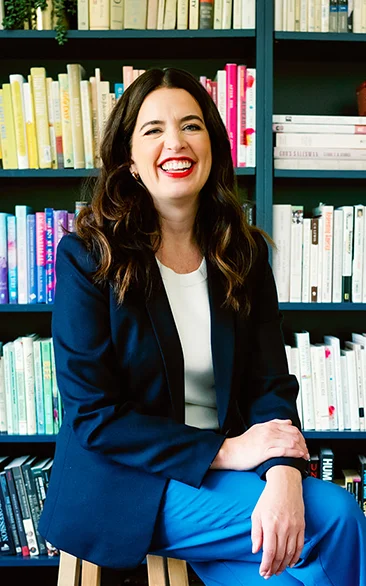


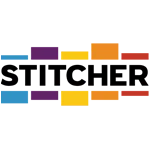





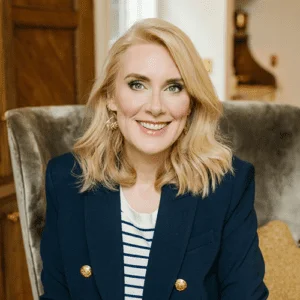
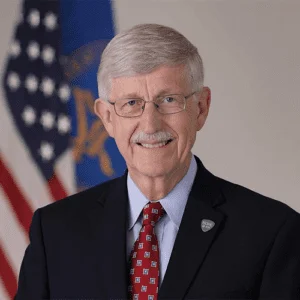
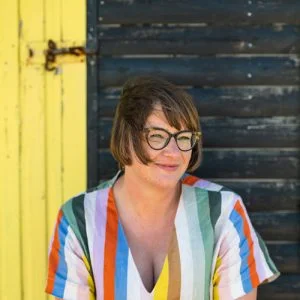

Leave a Reply